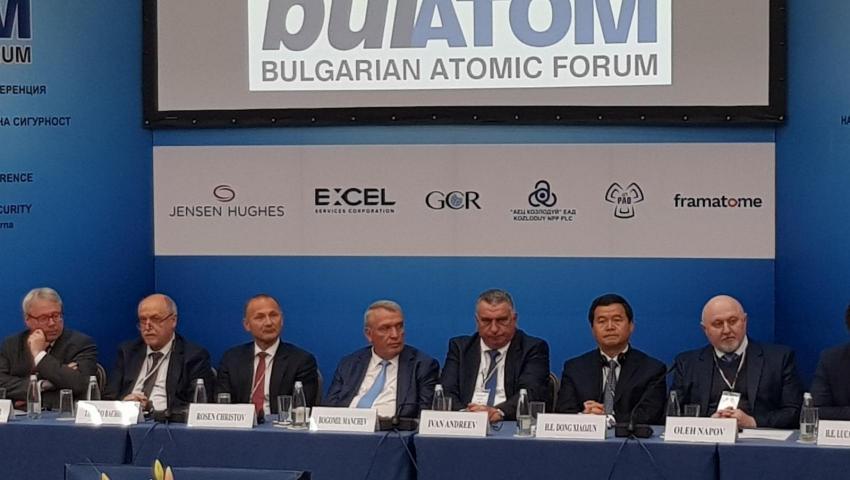Rosen Hristov: Bulgaria has the opportunity to design and build nuclear power plants safely
Thanks to the work and surplus profits of the Kozloduy NPP last year, businesses and consumers in our country were supported, explained Bogomil Manchev

Source: Georgi Velev / 3eNews
George Velev
In Bulgaria and Europe, we have almost all the necessary resources to produce, design and build nuclear power plants safely. This was stated by the former energy minister Rosen Hristov, who attended the conference. Our country also has the necessary capacity for the successful decommissioning of nuclear facilities, Hristov also explained. He took part in the International Nuclear Conference "Bulgarian Atomic Energy - National, Regional and Global Energy Security", which is held in the Rivera complex near Varna.
Minister Hristov recalled that Bulgaria joined the alliance of the 12 countries supporting the development of nuclear energy in the EU. At their latest meeting in Paris, it became clear that the development of new nuclear power in Europe could create 500,000 new jobs. The projects also include the Bulgarian proposal to build 4 new nuclear units in our country. He recalled that our country must close its coal plants by 2038, and the two units of the Kozloduy NPP will be closed by the middle of this century. This necessitates the construction of four new nuclear units, as base energy, to which various types of renewable energy sources can be built.
In Europe, we can support the process and exchange experience, competences and continue the development of this valuable industry, Hristov is emphatic. He reminded that our country is the main exporter of electricity for the region and this position should be preserved in the years to come. "Nuclear energy is important for national and regional security as well as for the green transition. I hope that the new government will continue the vision for the development of the electricity sector for Bulgaria," added former Minister Hristov. He recalled that with the computer modeling done and the projected growth of electricity, the need for new basic energy plants is clearly visible. The expected growth in electricity consumption will come from the advent of electrification of heavy industry, transport and green hydrogen production.
"It is clearly visible that without these new base capacities to replace the two reactors and the coal-fired thermal power plants, and if we do not develop these projects, Bulgaria cannot be an energy leader and ensure a smooth transition to decarbonization," Hristov was categorical.
He gave special congratulations to the students attending the conference, because young personnel in the nuclear field are particularly important. The life cycle of a nuclear unit is about 100 years - from construction, operation and decommissioning. Throughout this cycle, experts and all generations have a high level of pay and good working conditions, Hristov recalled.
"The development of base energy is important to be able to upgrade and create renewable energy sources as well. Solar energy is important, but so must the "foundation" called nuclear energy. This was also explained by Bogomil Manchev, Chairman of the Board of the "Bulgarian Atomic Forum - Bulatom". Engineer Manchev admitted that the construction of a nuclear reactor is a large capital investment and has a financial risk, but such a facility provides security for business and consumers for years.
He gave the example of the Kozloduy NPP, which, thanks to the excess profits received last year, was able to support Bulgarian business and citizens to get through the crisis with high electricity prices more easily. There was no way we could manage without the Kozloduy NPP, otherwise we would have taken large loans, it became clear from Manchev's words.
Manchev also wished the new regular government to consider the options proposed by the experts for the construction of new nuclear facilities. We see that there is a confrontation among the parties about the development of nuclear energy. But for 30 years now we have been trying to bite our tails - we are building, stopping a nuclear facility, added Manchev.
According to him, nuclear energy is definitely part of the European Green Deal. "The US and China have already recognized this, we are part of the 12 European countries developing nuclear technology. It is important to be part of this club, and we, as experts, show if there are flaws in the projects, everyone must comply with the high standards and requirements for nuclear safety. Regardless of whether they are Eastern or Western companies," Manchev was categorical.
